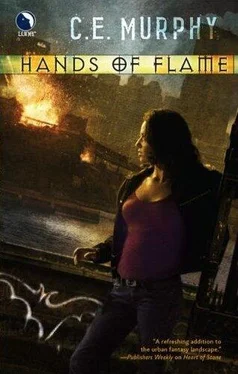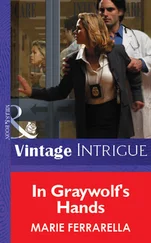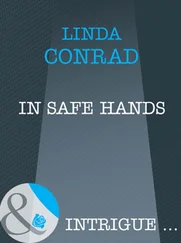“Who would you choose?” Eldred’s deep voice slipped through the hubbub, drawing Margrit’s attention for all that he spoke softly. She sighed and gestured around the room.
“Alban, ideally, but I doubt that’s really an option. I don’t know the rest of you at all, so any other choice is more or less meaningless. That said, probably you.”
“Why?”
“Because I know your name? Because you’re the head of the tribunal and because that makes you the final judge in my mind.” Margrit reached out to touch one of the pawns, then dropped her hand again. “Judges are supposed to be impartial, so you seem least likely to sway or be swayed by someone drifting through your mind.”
“If you undertake this task, Margrit Knight, you will need to burrow, not drift. This is not a game to be taken lightly.” Eldred retreated, leaving Margrit alone with the chess pieces and a room full of Old Races.
Debate went on longer than she anticipated, less for the matter of permission than the appalling idea that humans could perceive the gargoyle memories. Margrit heard talk of battle and of treaties, all of it idealistic with the first blush of conception. Neither was a wise choice, not that she could think of a way to stop a cadre of gargoyles from exposing themselves in the human world if that was their desire. Letting their discussion fade into white noise, she pushed a pawn forward so she could see it better, examining the individually carved scales on the serpent’s hide.
A second pawn across the board was pushed forward by a taloned finger. Margrit looked up, startled, to find Biali sitting down across from her. “They’ll be at it all night.”
“Inconvenient,” Margrit said under her breath. “What with you turning to stone at dawn and all. I’d hoped we could do this in one day. Night. Whatever.” Since he was there, she prodded another pawn forward, resisting the impulse to pick it up and study the feathery wings on the clawed woman’s back. “What race is this one?”
“Harpy. They lived in what you call the Amazon, and nine out of ten of ’em were female. Never stopped fighting amongst themselves, and when the humans came, they couldn’t organize to fight outsiders.” Biali pushed one of his hairy men forward. “Still, they did better than the yeti. They at least fought. The yeti only ran. What memories?”
Margrit went still, a hand above the dragon-cum-bishop. She’d cleared a path for him to angle out, but she left him where he was, sorting out Biali’s question. “Hajnal, mostly. Last weekend when we danced at the ball. I saw her through your eyes for a moment. Saw, or remembered, how much you loved her.” She’d even felt a flash of desire, unexpected heat in looking on a feminine body. Sharing memories was disconcerting. “I didn’t mean to intrude. Sorry.”
“You mean that, lawyer?”
“What, that I’m sorry? Yeah, of course I do. It’s not polite to pick up on other people’s memories without them knowing about it. I just don’t know how to brace against it.”
“Keep playing,” Biali said after a silence. “I’ll teach you.”
She wasn’t certain when the chess board had become slippery and malformed, like a thing out of dreams. Peaks and valleys rose, black squares and white distorted and stretched among them. Far too many of the playing pieces slipped away, plummeting to their doom in craggy rents that pulled the board apart. Margrit clutched at them, trying to save what she could, but they slid through her fingers, insubstantial and screaming as they fell. She lunged after them, unaware of her own danger until someone, grumbling, thrust a hand at her and dragged her back from a precipice.
“No point in going after what’s gone, lawyer. You’ll only die trying.”
Biali’s presence stabilized the world, chess colors fading into night shades along a mountain range that went on as far as Margrit could see. Trees, gray-green in moonlight, offered softness to the landscape, and a silver river far below glittered as it cut its way through the stuff of memory and made a living place of it. Biali glowed under the hard blue-white light, so bright Margrit cast a glance at the moon, half expecting it to be blue itself, like an ultraviolet light at a dance club. Everything around her had a sense of expectation, as if each thing she did was anticipated, considered and recorded. As if the world was a living, thinking thing, far more connected to its denizens than the one she lived in was.
“It is,” Biali said gruffly. “These mountains are our memories. They live while we do, growing and changing, all our histories built tall and wide for delving into when we need. You’re the first human to stand here, lawyer. Enjoy the view while you can.”
“That sounds ominous.” Margrit dragged a breath of crisp night air in, marking how different it tasted from the muggy warmth of Grace’s below-city tunnels. “And I didn’t say anything aloud, did I?”
“There’s no privacy here, not unless you learn to close up your mind and keep your thoughts to yourself.”
Margrit, not deliberately, thought of a box—a Chinese takeaway box, white with red painted letters on the sides and a fragile metal handle squared over its top—and folded it shut, trying to tuck her thoughts away. Biali laughed, startling her.
“Not bad. Not bad at all, lawyer. You’re leaking a bit, but you’ve got the right idea. Now, what’ve you got in your hand?”
Margrit clenched her hand, hard carved edges of a chess piece cutting against her palm. Feeling childish for asking, she said, “Does telling you give you some kind of advantage?”
Biali stared, then barked another laugh. “You’re in trouble either way, aren’t you? Nah, even if we’re carrying the same token the memories will carry us down different paths. Don’t tell me if you don’t want to. You’ll get free when you’ve done as much as you can whether I know where you’re off to or not.”
Margrit nodded stiffly, then looked around again. “This is your memory?”
“All of ours. You’re in the heart of our people.”
“Why don’t I see anyone else, then? People who are important to you, anyway?”
An image bloomed behind her eyes, drawn there as though it came from within her: her takeaway box, all white and red and faint angles. Then white granite grew up over its sides, sealing it off in flawless stone. The pictures faded and Margrit pursed her lips, looking down. “Oh.”
“Any other questions?”
“Yes.” Margrit lifted her eyes again. “What do I do?”
Biali shrugged his massive shoulders. “Just follow the memories, lawyer. They’ll take you where they want you to go.”
“One more question. Why are you letting me in?”
Biali shrugged again, turned away, his form fading faster than distance could take him away. “I told you once. You’re not bad, for what you are.”
Then he was gone, leaving Margrit alone on the mountainside.
She began to open her hand, then suddenly clenched her fist around the chess piece instead. If what Eldred and Biali had said was true, she might find her way to whatever bit of wisdom she was meant to bring back without looking at the piece. She knew from feel that it wasn’t one of the winged harpies, nor one of the hunched gargoyles: it was too tall for that, and too narrow. It might have been almost any of the others, though not, she thought, one of the yeti; it didn’t seem squat enough. If she needed its guidance later she would look at it, but for the moment she tightened her fingers and studied the mountains.
Openness and height spread out, reminding her that she hadn’t gone for a run in days. The leather and boots she wore were completely inappropriate for exercise, but Margrit glanced down at herself with a grin. Memories and dreams weren’t exactly the same thing, but they were kin to one another. If the gargoyles could shape the whole of their memories into a mountain range, she could certainly dress herself in running gear for the duration of her stay there.
Читать дальше












